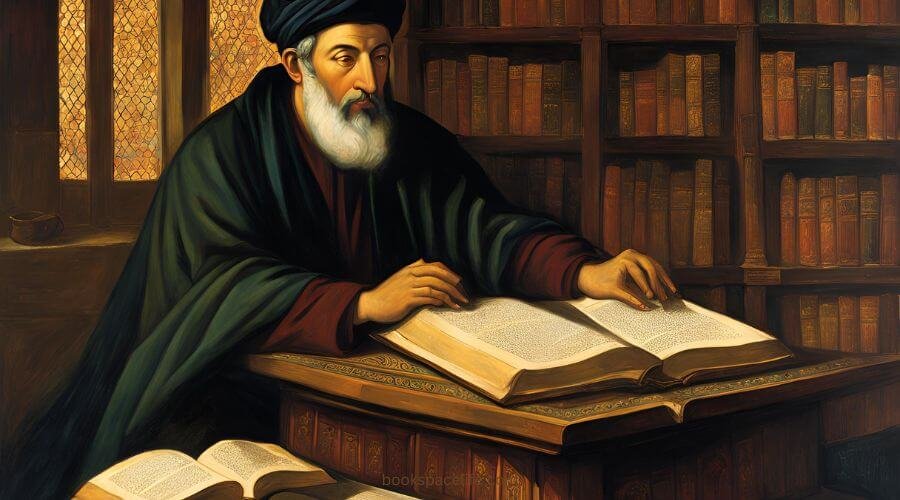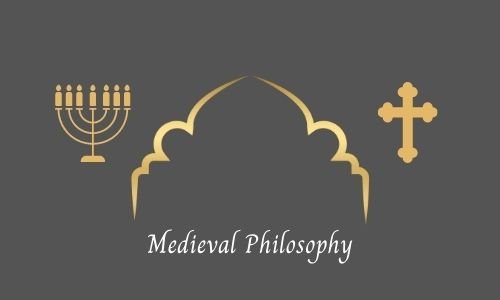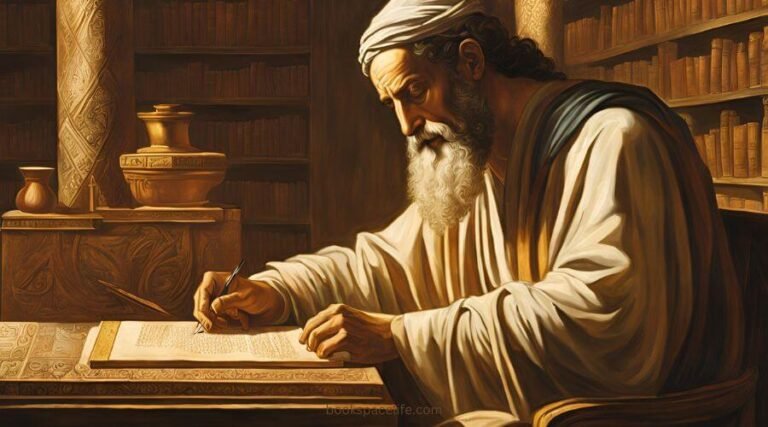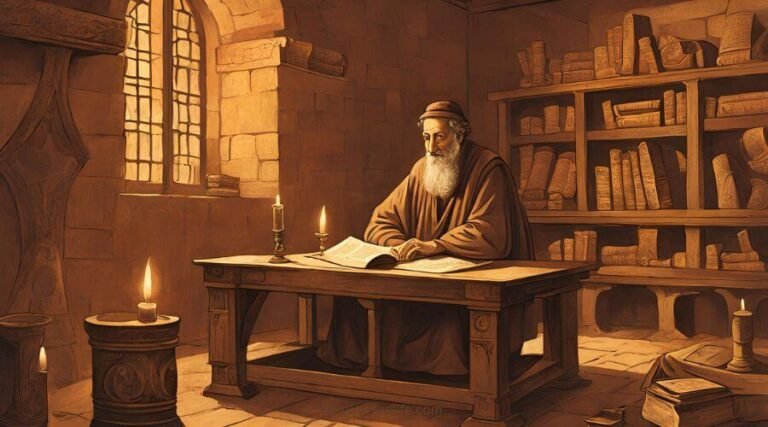Maimonides
Maimonides: A Life of Reason, Faith, and Influence
Maimonides, also known as Moses ben Maimon (1135 – 1204 CE), is one of the most celebrated figures in Jewish philosophy and one of the greatest intellectuals of the Middle Ages.
His life spanned turbulent times, including the political and religious upheavals of the medieval Jewish diaspora, and his work continues to have a profound influence on Jewish thought, philosophy, and even the development of Western philosophy.
Known for his contributions to Jewish law, ethics, and rationalist philosophy, Maimonides’ legacy endures in both the Jewish world and beyond.
Table of Contents
(1) Early Life and Education
Maimonides was born in 1135 in the city of Córdoba, Spain, which was part of the Islamic Almoravid empire at the time.
His family was deeply entrenched in both Jewish tradition and the intellectual world. His father, Maimon, was a respected Jewish scholar and a judge in the Jewish community, and his mother came from a family of prominent scholars.
The city of Córdoba, at its height, was a vibrant intellectual center where Muslims, Jews, and Christians coexisted, and this environment fostered Maimonides’ early education.
As a child, Maimonides was exposed to Jewish religious texts, and he quickly showed his exceptional talent for study.
He was fluent in Hebrew, Aramaic, and Arabic, which were essential languages for the intellectual life of the time. His formal education involved studying Torah, Talmud, and Jewish law, alongside the works of Aristotle, Plato, and other Greek philosophers, who were translated into Arabic during the Islamic Golden Age.
Maimonides also delved into astronomy, medicine, and mathematics, disciplines that were inextricably linked to the rationalism of the era.
His exposure to both Jewish texts and Greek philosophy would shape his intellectual framework throughout his life.
However, Maimonides’ formative years were not without hardship. In 1148, when Maimonides was a teenager, the Almohads, a more fanatical Muslim dynasty, conquered Córdoba and imposed harsher religious restrictions.
This political and religious turmoil forced Maimonides’ family to flee their home, moving through southern Spain, and eventually settling in Morocco.
It was in Morocco that Maimonides was able to continue his studies, learning from Jewish scholars and refining his understanding of both Jewish tradition and philosophy.
(2) Travels and Exile
Maimonides’ travels were largely shaped by the political and religious turbulence of his time.
After spending some years in Morocco, he moved to Fes, where he found greater intellectual freedom and stability.
His time in Fes provided him with the opportunity to further his education in the sciences and philosophy, but his life was once again disrupted when his family decided to leave for the Land of Israel.
However, due to unfavorable political conditions, Maimonides did not remain in Israel for long. Instead, he and his family settled in Cairo, Egypt, where Maimonides would spend the rest of his life.
In Cairo, Maimonides became a prominent figure in both the Jewish community and the wider intellectual world.
He was appointed as the personal physician to the Sultan of Egypt, Saladin’s vizier, and his medical expertise was highly respected across the region.
Maimonides also took on the role of communal leader for the Egyptian Jewish community, where he worked to guide and educate Jews who were scattered across the Islamic world. It was during this time in Egypt that Maimonides wrote many of his most significant works.
(3) Philosophical and Religious Contributions
Maimonides’ philosophy represents a synthesis of Jewish theology and Aristotelian thought, which was groundbreaking at the time.
His most famous work, The Guide for the Perplexed (also known as Moreh Nevuchim), written in Arabic, sought to reconcile religious faith with the rational philosophy of Aristotle.
In the Guide, Maimonides aimed to address the doubts and struggles of those who found it difficult to reconcile the apparent contradictions between religious texts and philosophical reasoning.
He argued that philosophy and faith could coexist harmoniously, asserting that both the study of the natural world and the study of the Torah led to the same ultimate truth.
One of Maimonides’ most important ideas in the Guide for the Perplexed was his emphasis on the unknowability of God.
Maimonides argued that God, being infinite, transcends human understanding, and thus any attempt to describe God in human terms was inadequate and misleading.
He famously stated that God is a pure being, entirely separate from the material world, and that the attributes ascribed to God in the Hebrew Bible should be understood as metaphorical.
Maimonides also tackled the issue of divine providence, explaining that God’s influence on the world operates through natural law, rather than through miraculous interventions.
This view was revolutionary at the time and created tension with both traditionalist religious thinkers and radical rationalists.
While Maimonides was a devout Jew, his ideas were controversial, and he faced criticism from both Jewish and non-Jewish philosophers.
Nevertheless, his approach to philosophy was foundational for later thinkers, both within and outside the Jewish tradition.
Another of Maimonides’ monumental works was Mishneh Torah, a comprehensive code of Jewish law. Written in Hebrew, this work aimed to organize and clarify Jewish law in a way that was accessible to all Jews, regardless of their knowledge of Talmudic discourse.
The Mishneh Torah is an exhaustive legal code that covers all aspects of Jewish life, from daily rituals to ethical behavior, and it remains one of the most important works of Jewish law to this day.
Unlike previous codifications of Jewish law, Maimonides’ work was systematic and concise, offering a clear and organized structure for legal practice.
(4) Legacy and Impact
Maimonides’ influence extends far beyond Jewish philosophy and law. His rationalist approach to Judaism laid the groundwork for the development of modern Jewish thought, influencing scholars such as Spinoza and later thinkers in the Enlightenment.
In his Guide for the Perplexed, Maimonides did not simply reconcile faith with reason but sought to create a unified understanding of reality where faith, reason, and science were not seen as contradictory but complementary.
This view had a profound impact on Jewish intellectual history and the broader intellectual traditions of the Western world.
His Mishneh Torah also had an enduring impact on Jewish law, especially in communities that lacked a strong Talmudic education.
The code provided a practical and accessible framework for Jewish legal practice, one that could be used by Jews in any part of the world, regardless of their level of scholarly expertise.
Even today, Maimonides’ works are studied in yeshivas, universities, and philosophical circles around the world.
Beyond philosophy and law, Maimonides’ contributions to medicine were equally significant. As a physician to Sultan Saladin’s court, Maimonides was respected for his medical knowledge, which combined Greco-Arabic medical traditions with Jewish teachings.
His writings on medicine, ethics, and the relationship between body and soul had lasting influence in both Jewish and Islamic intellectual circles.
(5) Conclusion
Maimonides was a towering intellectual figure whose contributions to Jewish thought, philosophy, and law continue to resonate across cultures and religions.
His ability to harmonize faith with reason, his groundbreaking work in Jewish law, and his influence on the intellectual currents of his time set him apart as one of the greatest Jewish philosophers in history.
Despite the challenges he faced, from the political upheavals of his youth to the theological controversies surrounding his ideas, Maimonides’ intellectual legacy has endured.
His works continue to inspire and challenge us to think more deeply about the relationship between reason, faith, and the world around us.








